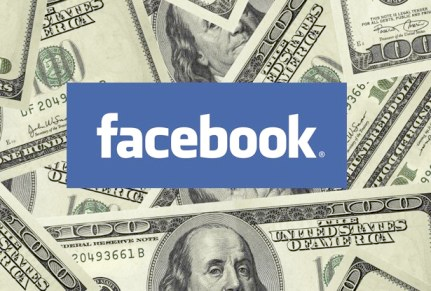Since its launch eight years ago, Facebook has navigated an uneasy tension between profitability and privacy. This fun and free service has somehow compelled users to willingly reveal the most intimate details about themselves.
Macleans blogger Jesse Brown wrote that Facebook “now owns the most comprehensive and accurate marketing database that the world has ever known.” Brown believes that, if fully exploited, Facebook could all but guarantee that no advertiser ever wastes money on a false impression again.
But Facebook has yet to fully expose its users. Facebook “has carefully and slowly nudged us two steps at a time out of our privacy comfort zones, and then retreated one step back when inevitable backlashes arise,” wrote Brown. This negativity could be tolerated when it was a private company. But this is no longer the case.

As a publicly traded company, Facebook “will now be legally obligated to do everything it can to always increase revenue for its shareholders,” wrote Brown. Though the company has seen remarkable revenue growth in the past few years, Facebook’s most serious concerns arise from a tension at the core of its business: ensuring the privacy of its customers while using what it knows about them to court advertisers. Facebook could face more pressure than ever to turn an increasingly bigger profit quarter upon quarter, whether through changes to the site that keep it profitable, more partnerships, and acquisitions.
Lenz imagined that “Facebook would seek both the partnership and acquisition avenues to accomplish these goals. With an audience of 800 million people, companies will be clamoring to reach that base, and on the other side, if a company can provide good content, then Facebook will want to promote it.”
One of the company’s triumphs as both a business and a popular digital gathering place is that it has, as David Sorno of the Los Angeles Times wrote, “coaxed users into sharing ever larger amounts of information about themselves and their daily doings – information it readily turns into advertising gold.”
However, Federal authorities are concerned about what kind of information Facebook has and where it ends up. Last November, the US Federal Trade Commission (FTC) accused the company of “deception and violations of federal law by telling users it would keep their information private and then repeatedly allowing it to be shared and made public”. As part of a far-reaching settlement, Facebook agreed to allow independent privacy audits from the FTC every other year for 20 years and to obtain users’ permission before changing privacy settings.
Additionally, hacking has become an increasing problem for Internet companies, and Facebook believes it could be in attackers’ sights. Due to its high number of users, Facebook is considered a particularly attractive target for such attacks. In the public company registration it filed with the US Securities and Exchange Comission, Facebook acknowledged that any failure to protect its user data from malicious intrusions, “may harm our reputation and our ability to retain existing users and attract new users.” However, Facebook CEO Mark Zuckerberg has stated that Facebook is, and will continue to remain, committed to protecting the privacy of its users.
As the evidence reveals, Facebook’s most valuable asset is its users’ personal data, and it will entice users to share more and more of their lives on the social networking website. In fact, it has already prompted people to share more about their past by implementing the Timeline feature, a reverse-chronological display of a user’s history on Facebook and other life events. The Timeline replaces and combines a user’s Facebook Wall and Profile, and will slowly become a mandatory feature for all users.




